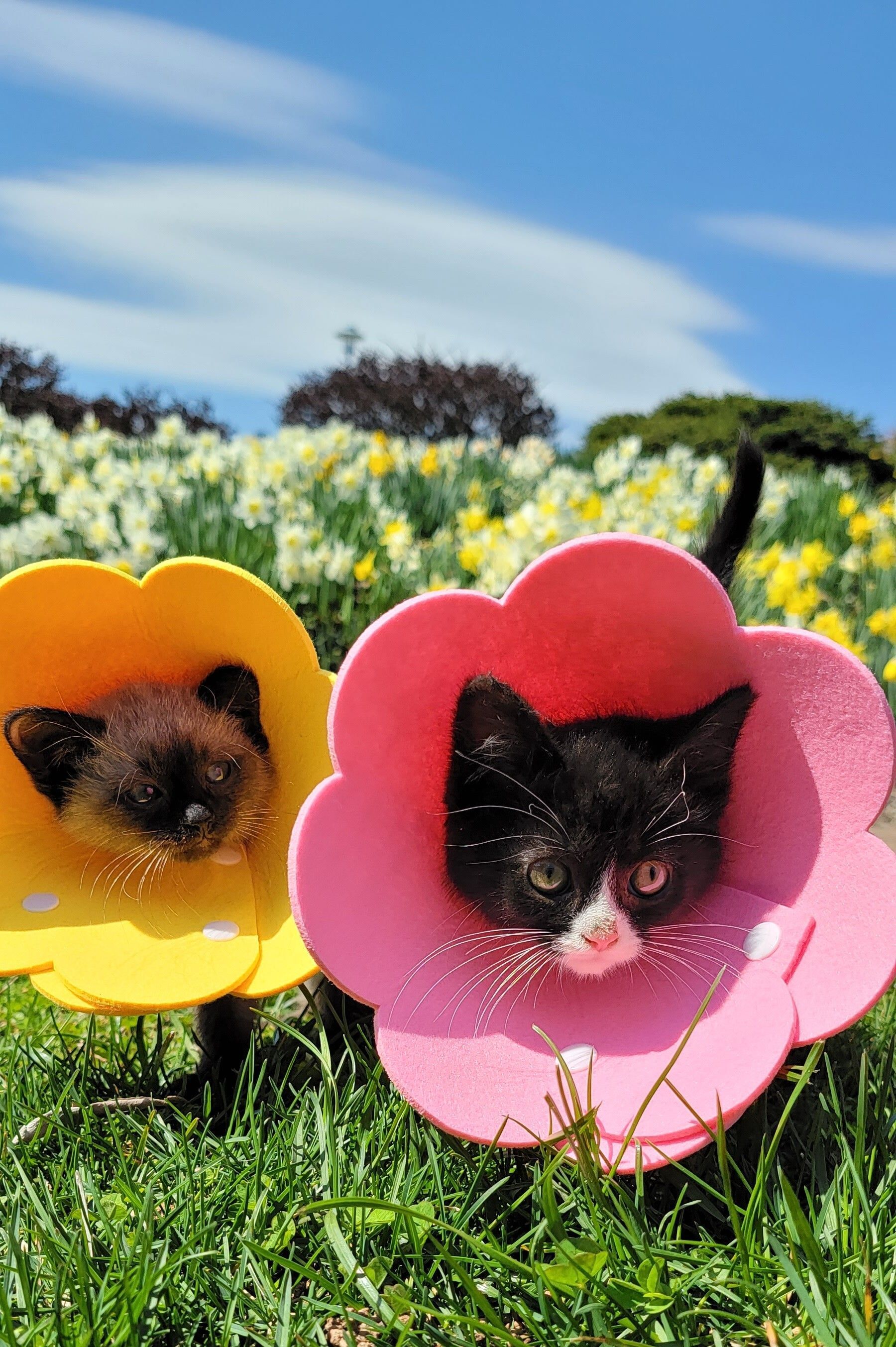
Anybody who has fed cats in their backyard or adopted a cat from a shelter has probably heard the term “kitten season.” What is kitten season exactly? Kitten season is the time of year starting in early spring and going until mid to late fall that community cats begin giving birth to litter after litter of kittens. Unlike normal seasons when, if you stick it out for three to four months, you can find solace in knowing the next season is right around the corner, kitten season can last eight to ten months.
We know “kitten season” might sound absolutely adorable. How could it possibly be a bad thing to be flooded with cute fluffy kittens? The simple answer: overpopulation. When community cats give birth to litters of kittens outside, they are adding to feline overpopulation. A single un-spayed female cat can birth about 180 kittens in her lifetime, on average.
You can help by taking community cats in your neighborhood through a TNR (Trap-Neuter-Return) program. TNR is a method of spay/neuter for outdoor, free-roaming cats. Community cats rapidly reproduce, causing overpopulation, animal suffering, and high kitten mortality. Participating in TNR is the only proven way to humanely decrease the population of free-roaming community cats. Having a cat spayed or neutered not only cuts down on adding to overpopulation, but it also cuts down on other nuisance behaviors associated with outdoor cats like territorial yowling, fighting, and spraying. We offer a TNR program through our low-cost Spay/Neuter Clinic.
During kitten season, you may assume the best action is to bring the kittens into the shelter. This is sometimes the case, but not always. Neonatal kittens should not be separated from their mother whenever possible. You may feel that you are saving them by bringing them indoors, but removing a newborn kitten from their mother means depriving them of the milk and nutrients they need to survive. Trying to care for a kitten on your own or taking them to a shelter can cut their chance of survival in half. Feline infants, like human infants, are still in very early stages of development and, therefore, are immunocompromised. If they stay in a shelter, surrounded by other cats, even ones that appear healthy and are up to date on vaccinations, they are very susceptible to illnesses. Kittens must go into a foster home as soon as possible to be given the best chance of survival. In a foster home, they can receive one-on-one, round-the-clock care that a shelter does not have the capacity to provide.
Without an extensive network of foster caregivers, we would be unable to help these kittens thrive. We are always in need of more feline foster superheroes to help us save these endearing little lives. The YCSPCA provides our foster caregivers with food, litter, supplies, and vet care for their foster pet. If you would like to become a feline foster superhero, apply here!








